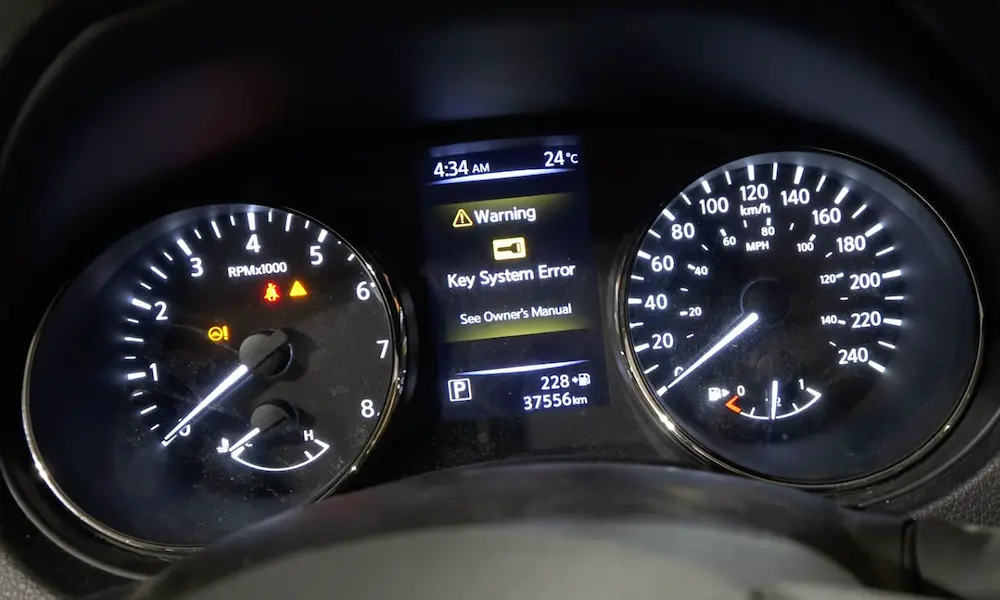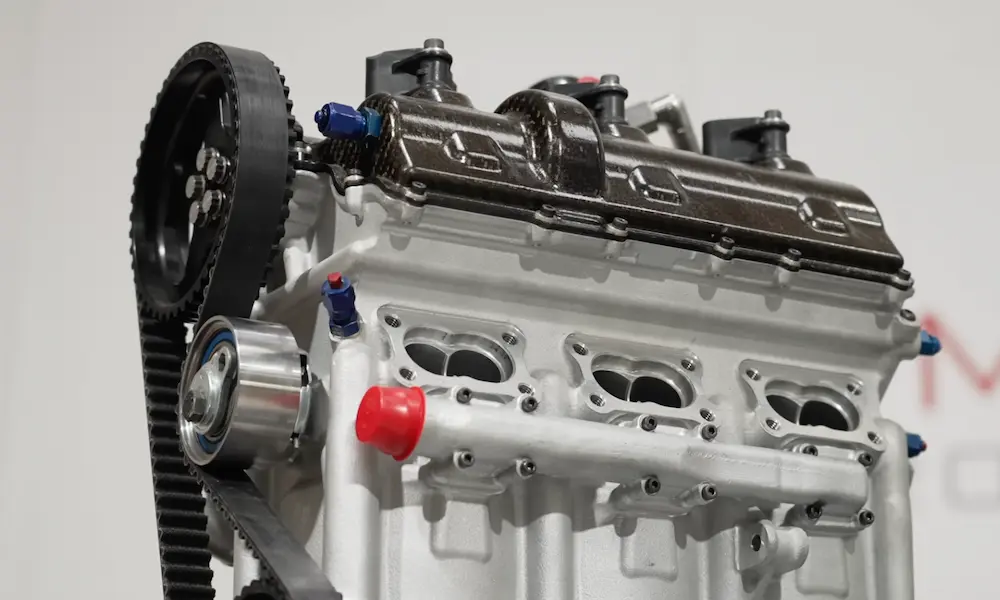Is your Nissan Altima struggling with transmission problems? From jerking and shifting issues to complete failures, these challenges can be frustrating. Uncovering the causes and exploring solutions might just be what you need. Dive in to find out more about these issues and learn how to address them effectively to keep your Altima running smoothly.
Symptoms of Transmission Issues
When dealing with a Nissan Altima, there are specific signs that can alert you to potential transmission problems. Recognizing these symptoms early can help in getting your car back in shape.
Lack of Acceleration
One of the troubling symptoms is when your car doesn’t accelerate smoothly or hesitates when you press the gas pedal. You might notice a delay between pressing the pedal and the vehicle moving forward. This can be due to a failed torque converter or transmission slipping.
A failing transmission might struggle to engage the appropriate gears, leading to this problem. It’s crucial to address these issues as soon as you notice them to prevent further damage. Make sure to check the transmission fluid, as low fluid levels can exacerbate such problems.
Uneven Movements While Driving
Another symptom is feeling jerky or uneven movements when driving. This may include shaking, juddering, or a sensation of the car not running smoothly. These movements can result from issues with the transmission fluid being low or contaminated.
Vibrations might also occur when the transmission tries to change gears but doesn’t do so smoothly. It’s possible you could also experience a burning smell, which can indicate overheating due to low fluid levels. Addressing these signs early might save you costly repairs. Be vigilant and take note of any unusual behavior in your vehicle’s handling.
Common Nissan Altima Transmission Problems
The Nissan Altima is known for a few transmission problems. These include issues with the CVT, leaks, and shifting gears. Below, you’ll find details on each problem, along with potential causes and solutions.
CVT Transmission Failure
CVT transmission failure is a common issue in the Nissan Altima. You might notice symptoms like hesitation during acceleration and a lack of power. These problems are often due to overheating or wear and tear on the transmission components.
If you experience these issues, you might need a transmission replacement. Regularly checking and maintaining the transmission fluid can help prevent problems. If you notice any unusual sounds or performance issues, it’s a good idea to have a professional inspect the vehicle.
Transmission Fluid Leaks
Transmission fluid leaks can lead to significant problems if not addressed promptly. You might see reddish puddles under your car, or notice a burning smell when driving. These leaks can be caused by damaged seals or a broken pan.
To prevent leaks, inspect the seals and the pan for damage regularly. Replacing worn-out parts can save you from more extensive repairs later. Keeping fluid levels in check can also help ensure your transmission operates smoothly.
Problems with Torque Converter
The torque converter in your Nissan Altima might cause trouble if it’s malfunctioning. Signs of a faulty torque converter include vibrations while driving or slipping gears. These problems can result from worn bearings or damaged blades inside the converter.
If you suspect torque converter issues, seek professional advice. A mechanic can assess if you need repairs or a replacement. Regular servicing of the transmission can help keep your torque converter in good condition.
Shifting Gears Concerns
You might encounter shifting gear concerns with your Altima. These can manifest as delayed gear engagement or the gear shift getting stuck in park. Such issues often come from worn gear cables or problems with the transmission control module.
Checking the gear cables for wear and ensuring the control module is functional can prevent such problems. Routine maintenance and timely repairs can also help ensure smooth gear shifting.
Issues with Transmission Solenoid
Problems with the transmission solenoid can affect the shifting process in your Nissan Altima. Symptoms include erratic shifting or being unable to downshift. These issues might occur because of a faulty solenoid valve or poor electrical connections.
If you notice any of these symptoms, have the solenoid checked. Fixing electrical connections or replacing faulty solenoids can resolve the problem. Always perform regular transmission checks to catch solenoid issues early.
Years and Models Affected
When you’re considering a Nissan Altima, it’s important to know which model years have had transmission problems. These issues were most common in the years between 2012 and 2018.
In these years, the Nissan Altima faced several transmission issues, including problems with the CVT (Continuously Variable Transmission). Reports showed that some Altimas also experienced transmission fluid leaks and unusual vibrations when driving.
To make it easier, here’s a quick list of affected years:
- 2013
- 2014
- 2015
- 2016
- 2017
- 2018
These specific years experienced the most complaints about transmission failures or disruptions. You may want to study these models closely before making a purchase.
Some Altima models also had issues with the torque converter and gear shifts getting stuck. If you’re looking at used vehicles, keeping this information in mind can help you make a better choice.
What Owners Can Do
When facing transmission issues with your Nissan Altima, it’s important to know how to take action. Reporting your problems and seeking professional repairs can make a big difference.
Reporting to CarComplaints
To make your voice heard, consider reporting your Nissan Altima transmission problems to CarComplaints. This is a popular platform where car owners share their experiences. By posting about issues like hesitation during acceleration, slipping, or fluid leaks, you help create a comprehensive database of complaints. This information is valuable for spotting trends and can lead to recalls or service bulletins from automakers.
To file a complaint, visit the CarComplaints website and follow the user-friendly process. Be sure to include details such as the year of your Altima, mileage, and specific symptoms. This helps other drivers and industry experts understand the scope of the issues with these transmissions.
Seeking Transmission Repair and Maintenance
If your Nissan Altima is experiencing recurring transmission problems, timely repairs are crucial. A certified mechanic can diagnose issues like growling sounds, shifting delays, or a stuck gear shift. It’s best to address these concerns as soon as possible to prevent further damage.
Regular maintenance, such as checking transmission fluid levels and getting timely oil changes, might reduce the risk of problems. If you notice strange behaviors like juddering or slipping, it’s wise to take your vehicle in for an inspection. Remember, a well-maintained car often runs smoother and lasts longer.
By actively maintaining and addressing transmission issues, you can increase the reliability of your Nissan Altima.
How to Prevent Transmission Problems
Keeping your transmission in good shape is important for your Nissan Altima. Here are some tips to help you prevent issues and keep your ride smooth.
Check the Transmission Fluid
Make sure you regularly check the transmission fluid. Low levels or dirty fluid can lead to problems like slipping or gear shifting issues. Park your car on a flat surface, let the engine warm up, and check the fluid level with the dipstick. Top it up if needed.
Use the Right Fluid
Not all transmission fluids are the same. Use the type your manufacturer recommends for your CVT transmission. Using the wrong fluid might cause damage over time. Always consult your car’s manual or a trusted mechanic.
Upgrade Your Transmission Control Module (TCM)
The TCM controls how your transmission shifts gears. Sometimes, a simple update or upgrade can help it run more efficiently. If you notice unusual behavior in your transmission, it might be worth having a professional check the TCM.
Regular Maintenance
Stick to a regular maintenance schedule. This includes routine checks and addressing any small leaks or noises. Catching these early can save you from bigger, more expensive repairs down the road. A little attention goes a long way in preventing transmission problems.
By taking these steps, you can enjoy a smoother and more reliable driving experience.












